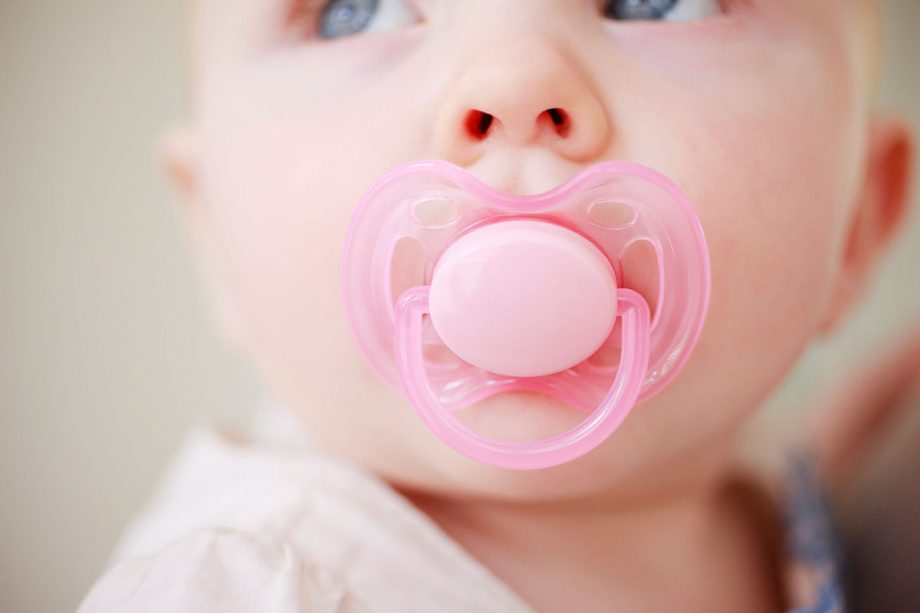There are many controversial topics in parenting and pacifiers rank among the most heated, right up there with baby formula and screen time. The root of the debate seems to be the belief that pacifiers cause serious orthodontic issues (sometimes referred to as “pacifier mouth”). While it’s true that pacifiers can impact your child’s teeth, we do have good news for you! Pacifiers are actually fine for babies and in most cases, they won’t ruin your child’s teeth. Here’s what you need to know.
The Controversy About Pacifiers
There are three main arguments against pacifiers. Some argue that pacifiers cause confusion about latching, interfering with breastfeeding. It’s also thought that pacifier use may cause acute ear infections. These are topics to address with your pediatrician if you have concerns.
The third argument is where we can help: the belief that pacifiers cause a wide range of dental problems, such as cavities, gum recession, misaligned teeth and bite problems. Parents are often cautioned to limit pacifier use to prevent the dreaded pacifier mouth. Pacifier mouth is a bite that doesn't close in the front and teeth that are crooked. This can lead some parents to avoid using pacifiers altogether, while others might give their babies pacifiers and feel guilty about it or resign themselves to years of driving their child to orthodontist appointments when they’re older.
What Current Research Says About Pacifiers
Studies have found that many of the dental problems attributed to pacifiers only occur when a child uses a pacifier beyond the age of five or when parents use pacifiers in inappropriate ways, like dipping them in honey or sugar. The American Academy of Pediatric Dentistry recommends that toddlers stop using pacifiers by age three, while the American Dental Association gives kids an additional year, recommending that pacifier use cease by age four. Most children typically grow out of pacifier use on their own by these ages.
In other words, a two-year-old who uses a pacifier for a few minutes each night to fall asleep isn’t going to need extensive orthodontic treatment as a result. Still, there are some differences in the teeth of children who stop using pacifiers before they turn one and children who continue to use them at the ages of two and three. This is why most pediatric dentists recommend weaning children off of the pacifier around the age of two. If you have trouble breaking the habit, we can discuss potential solutions with you, like a habit appliance.
The other important fact we know from research is that pacifiers have been shown to reduce the risk of Sudden Infant Death Syndrome (SIDS) and they give babies a tool for self-teething. There’s no need to avoid using pacifiers with your infant because of dental worries. In fact, many babies who don’t use a pacifier will develop thumb or finger sucking habits instead, which are even more difficult to stop!
Find Out if Pacifier Use Is Affecting Your Child’s Teeth
Are you concerned about your child’s pacifier use? Contact us today to schedule an appointment at one of our four locations.

